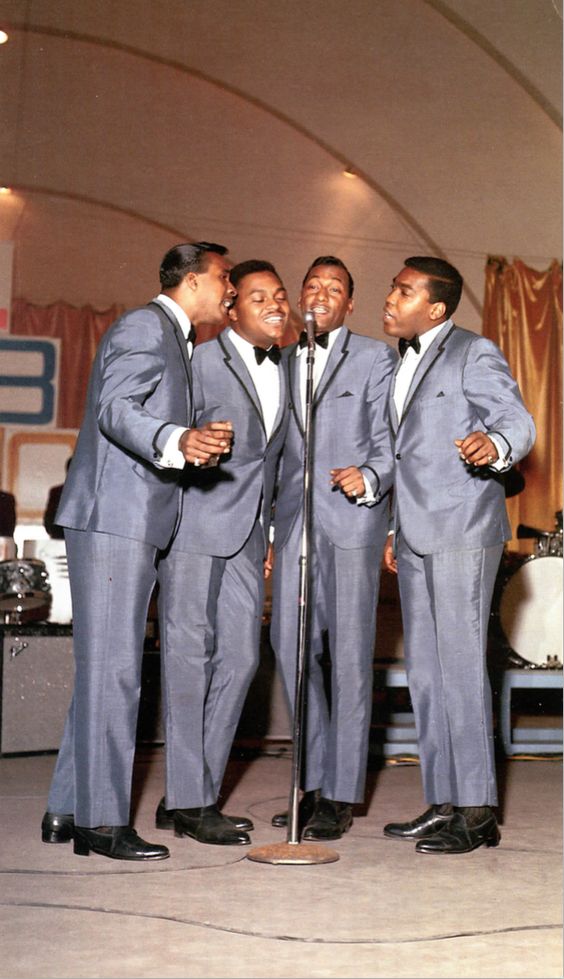Lead: A thunderous baritone and a blunt message — the Four Tops’ “Keeper of the Castle” ripped through the gentle veneer of pop in the early 1970s and demanded men take responsibility at home and in the community.
The record was a hard turn for a group known for tender ballads and romantic hits. As the Four Tops left Motown for ABC-Dunhill, they did not abandon their craft; they sharpened it. “Keeper of the Castle” arrived not simply as another single but as a social statement, a brief sermon wrapped in funk-tinged soul that asked its listeners to look in the mirror.
The songwriters, Brian Potter and Dennis Lambert, chose plain language over poetry. The lyrics were direct about duty and leadership, and Levi Stubbs’ voice—raw, commanding, vulnerable—made the plea feel urgent. For listeners now in their 50s and older, those lines landed like advice from a stern relative: inconvenient, unglamorous, and impossible to ignore.
Musically, the track blends pop accessibility with a deeper soul groove. A steady rhythm holds a chorus that hooks quickly; tasteful horns and harmonies support Stubbs’ baritone rather than compete with it. The result is a record that can sit on a radio playlist alongside lighter fare but hits with the moral gravity of a sermon.
Behind the craft were clear intentions. Brian Potter, credited as one of the song’s writers, described the aim of the piece in interviews of the era, insisting the song was meant to nudge men toward accountability and stable family life.
Brian Potter, songwriter: “We wanted a song that would speak plainly — to push men to be steady, to protect the home and the young ones, without preaching.”
That sense of mission was reflected in the group’s performance. Abdul “Duke” Fakir, one of the surviving members, has often pointed to Levi Stubbs’ unique voice as the instrument that carried the message beyond the studio.
Abdul “Duke” Fakir, Four Tops member: “Levi didn’t just sing the words — he lived them in every take. You could hear him telling the world what needed fixing.”
The timing felt appropriate. Society was shifting and listeners were wrestling with new roles, new responsibilities, and older ideals. A single that pushed for integrity and commitment resonated deeply with audiences who remembered earlier Motown romance songs but now wanted music that acknowledged real-life strain.
For many older listeners, the song served as a bridge: familiar voices and harmonies, but with contemporary concerns. Radio playlists that once favored the Four Tops’ love stories welcomed this tougher, more civic-minded offering. It broadened the group’s reach and reinforced their reputation as more than entertainers — as commentators.
Numbers matter: the record helped keep the Four Tops in the public ear during a crucial transitional phase. Losing the Motown label could have dimmed their flame, but songs like this proved their artistry was not tied to a single company. The group—Levi Stubbs, Renaldo “Obie” Benson, Lawrence Payton, Abdul “Duke” Fakir—showed adaptability and kept their signature harmonies intact.
Yet the song’s moralizing edge drew scrutiny. Some listeners bristled at being lectured, while others welcomed the clarity. That tension made the record talk-worthy: did popular music have the right to instruct, or should it simply entertain? For the Four Tops, the boundary blurred.
The track’s production, plainspoken lyrics, and Stubbs’ baritone combined into a compact argument that could be played in living rooms, at family gatherings, and over morning coffee. It linked pop craftsmanship with social intent, offering older audiences a message that felt both familiar and urgent.
Inside the studio, the shift from Motown’s streamlined system to ABC-Dunhill’s looser approach meant the group had more room to shape their sound. The change produced not only a single with a moral center but a demonstration that the Four Tops could steer their own course and still speak to the heart of a generation burdened with—
